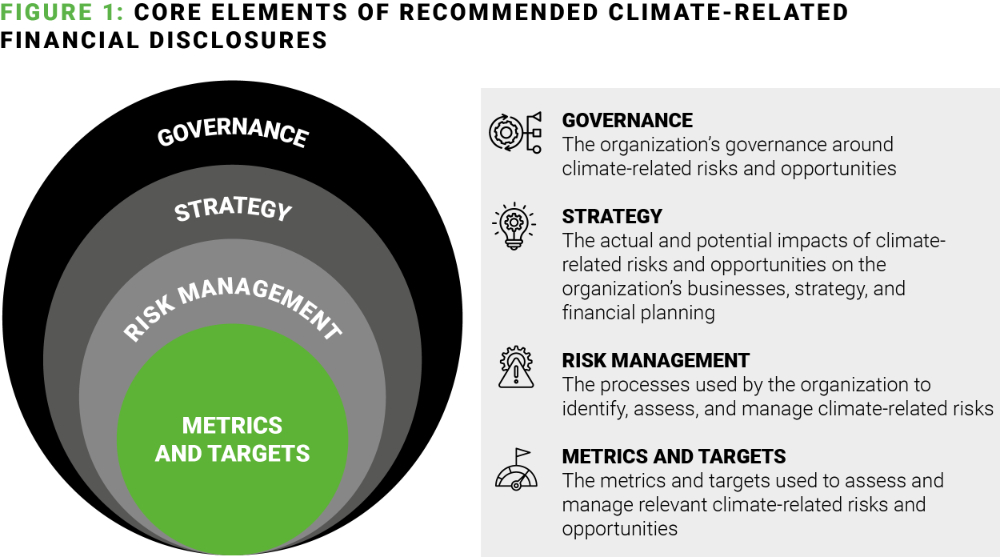- within Antitrust/Competition Law and Intellectual Property topic(s)
- with readers working within the Retail & Leisure industries
California is getting greener—but companies may see red on their balance sheets if they don't keep up with legislation.
The state recently enacted SB 261, a first-of-its-kind climate disclosure law that mandates companies doing business in the state (with more than $500 million in annual revenue) to provide public reporting on climate-related financial risks and mitigation strategies. Companies must publish a report every two years, with initial reports due on January 1, 2026 based on 2025 data.
While most major companies have previously published these types
of reports using the Task Force on Climate-Related Financial Disclosures
(TCFD) framework, SB 261 takes further aim at industry leaders
to drive action or face the consequences. Here's what companies
need to know.
Financial and reputational risks of non-compliance
A $50,000 annual penalty may not seem a harsh fee for companies that fail to file, but the reputational damage that non-compliance brings will carry far greater costs. State and activist groups publicize those that don't comply, which leads to investors redirecting dollars and customers pulling spend. On top of this, companies that concentrate assets or supply chains in locations that are vulnerable to wildfires, rising sea levels, and other climate-related extreme weather events face physical risks that can hurt their bottom line.
As an example, consider global climate nonprofit Ceres' recent report analyzing the
progress made by 50 of the largest public food and agriculture
companies in North America regarding the Food Emissions 50 initiative. The report
homepage links out to individual company scorecards, which detail
that eight of the 50 companies—BJ's Wholesale Holdings,
Bloomin' Brands, Darden Restaurants, Flowers Food, Kroger,
Loblaw Companies, Performance Food Group and Texas
Roadhouse—fail to hit any of the five key metrics towards
tackling climate risk and accelerating a transition to a
lower-emissions economy. Coverage of the report proliferated across
industry and climate-related media and newsletters.
Actions to mitigate risk
Climate strategy is now necessary to operate a company in 2025. Companies will need to create a comprehensive report for how they manage risks from the board level all the way down to how they're managed on the factory floor—and at every level in between.
At the top, this requires c-suite involvement in delegating responsibilities. By assembling the right upper management team and promoting internal awareness throughout the organization, companies can govern risks while also finding opportunities to better track their carbon footprint and commit to science-based reduction measures. More so than compliance, companies must focus on holistic change management initiatives that transform operations from the ground up.
When authoring a report for SB 261, it's prudent to engage with subject matter experts. Prioritizing the most critical business units, categories, and product lines will help to build the foundation for evolving business models needed for SB 261 and similar legislation.

At AlixPartners, we have worked with companies on climate-related compliance projects that led to business model transformations with significant financial impacts. In 2023, we helped building materials company Kingspan to reconfigure its supply chain as part of its "Planet Passionate" initiative. With a goal to cut its carbon output in half from its primary supply chain by 2030, Kingspan needed to build out opportunities around due diligence, digitalization, and procurement. Through a comprehensive review of its supply chain, we aided the company's efforts to meet European regulation requirements while enhancing its supplier due diligence framework and clarifying its material ESG topics.
Don't procrastinate—act now
California is a massive market, and the impact of failing to comply with SB 261 regulations is real. But if companies take a few important steps, they can easily mitigate risks.
There is a straightforward fix to ensure compliance through key change management initiatives—you can get in front of this law, you just must do it now. The longer you wait, the larger the financial and reputational repercussions. With each successive generation, customer pressure on top of legislative pressure will only increase.
California is getting greener and companies must follow suit. AlixPartners and The CF Team are partnering to help companies navigate SB 261 and hit the January 1 filing deadline. Reach out to the authors to learn how our experts can aid your reporting efforts.
This article was co-authored by Patrick Carroll of The CF
Team.
The content of this article is intended to provide a general guide to the subject matter. Specialist advice should be sought about your specific circumstances.


